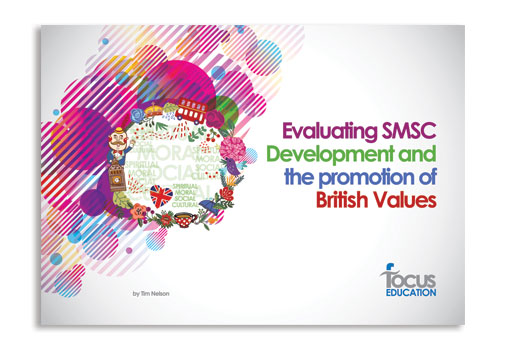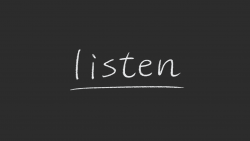
I’ve been thinking a lot recently about British values (or should that be British Values?) and SMSC Development, what they mean in a changing context and the current climate we’re in (rainy, mostly).
Right… put the kettle on, glance out of the window to check if it’s still raining and tut knowingly when your worst fears are confirmed, grab a biscuit to dunk, finish reading that article about England’s abject failure in yet another sporting World Cup and let’s think about British values.
Or maybe we won’t do that. Not just yet. Maybe later.
You won’t mind waiting. Just as long as it’s in an orderly queueing system. Preferably with some of those thick ribbon things on a grid of poles to make sure everyone stays in their place and inches their way progressively back and forth to the front until they’re called forward by the annoyingly cheerful tannoy which says the number with the rising inflection and panache of the winning ball announcement in the lottery. And then the merciful release of those final few quick steps to the counter or cashier. Maybe to pay for some scones (to rhyme with cones or cons? Let’s not get started on that one) or a chicken tikka masala. And then we can apologise profusely when we don’t have anything smaller than a £20 note and, no sorry, we don’t have a nectar card and really don’t want one right now if that’s okay? Sorry. Sorry.

SMSC
Instead, let’s start with SMSC. Or pupils’ Spiritual, Moral, Social and Cultural development to give it its full and worthy title. The phrase is of course from Ofsted documentation, but don’t let that put you off.
It’s actually what we do so well in our primary schools and we have always done so well. It’s just a case of making sure we recognise it when we see it; we celebrate the best practice and we share the good stuff.
Of the four elements of SMSC development it’s often the first –the spiritual development – which school leaders and teachers find the most difficult to identify and demonstrate. This is perhaps because it’s so wrapped up in the ethos of their school. “It’s just what we do here” is a typical comment when leaders are asked about spiritual development in their setting.
So perhaps schools should make sure they have a clear definition in place? After all, how does a new teacher know “what we do here”? Remember, spiritual development is much like a puppy, insofar as it isn’t just for Christmas. Or only developed through any other religious celebration for that matter. Nor is it exclusively developed in RE lessons. I’ve seen some excellent RE lessons with no element of pupils’ spiritual development whatsoever.
Ofsted provide a definition of what spiritual development looks like in their handbook for section 5 inspections, August 2015:
“The spiritual development of pupils is shown by their:
-
ability to be reflective about their own beliefs, religious or otherwise, that inform their perspective on life and their interest in and respect for different people’s faiths, feelings and values
-
sense of enjoyment and fascination in learning about themselves, others and the world around them
-
use of imagination and creativity in their learning
-
willingness to reflect on their experiences.”
SMSC in Practice
So maybe it’s time to discuss this in a staff meeting and then with governors to arrive at your own definition for your setting and to discuss what this actually looks like in practice. It will include the good old “awe and wonder” moments. Like that time when the chicks were hatching in the incubator and the children couldn’t get near because the teachers were all huddled around cooing and whispering encouragement as a tiny beak emerged, and playtime ran really, really late until the last one hatched. It will include that time the children talked about which pictures made them feel sad and which pictures made them feel happy when they were looking at famous paintings and learning about the lives of the artists. It will include the moment the whole room went silent when we turned out the lights and the class looked at the pictures from the Hubble space telescope on the whiteboard and then a little voice pipped up with, “Aren’t we small then?”
Write a school definition of spiritual development; share examples of these moments amongst staff to make the abstract statements come to life and very soon it will be much more than just a vague “what we do here”.
Rainbow Fish & British Values
Pupils’ moral, social and cultural development will also be happening, albeit maybe without teachers realising it or planning for it deliberately. But find a teacher who doesn’t discuss with the children why the Rainbow Fish doesn’t have friends at the beginning of the story and then does have friends at the end. That’s an aspect of moral development. Find a school that doesn’t have effective transition arrangements for children who join mid-phase, often buddying them with an existing pupil. That’s an aspect of social development. And when schools celebrate pupils’ participation in art and music, these are aspects of their cultural development. Again, it is worth defining each of these separately and then sharing more real-life examples to develop that common understanding amongst staff and governors in a school. The Ofsted handbook has definitions on pages 35 and 36 that may be useful to begin the process.
So back to British values. Thank you for waiting so patiently. That rain hasn’t cleared up yet has it?
The DfE produced their ‘Promoting fundamental British values as part of SMSC in schools’ in November 2014 and we are all aware of the background to its publication. But again, so much what the document describes is actually ongoing practice in so many schools.
‘Rule of law’ might have authoritarian overtones, but in primary schools this could include teaching children how to cross the road in KS1 and Bikeability training in KS2. Democratic processes can begin with voting on which story to have read at the end of the day in Reception.
If you haven’t shared the DfE document with all staff and governors then they really need to read it. It’s only nine pages and two of those are the covers. A common understanding of what it looks like in your setting can then be developed. This can be achieved by discussing examples against each of the bullet points in the document. Make a note of these and include this in induction material for new staff. The DfE even gives examples of actions schools can take as a starting point.
I don’t like to mention it, but I’ve actually written a book about evaluating SMSC and the promotion of British values. It’s probably not very good. I’ve called it Evaluating SMSC and the Promotion of British Values, because…well, that seemed like an appropriate title, and I didn’t want anything too brash or overstated. But please don’t feel you should buy it, just because I’ve mentioned it here. Read it surreptitiously in a book shop instead. Whilst you keep out of the rain.
Continue the Conversation
If you’d like to hear more about British Values and SMSC Development, you really can see my book here. If you would like to speak with us, get in touch with the Focus Education office on 01457 821 818.
Related Publications
Tim has been a headteacher with a successful track record; his last school had a reputation for innovation and their initiatives have been utilised by others and presented internationally.
School improvement has been at the heart of his career, working as an LLE, a School Improvement Partner, Professional Partner as well as an Ofsted inspector and mentor for trainee inspectors.







